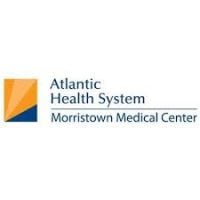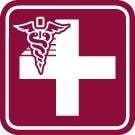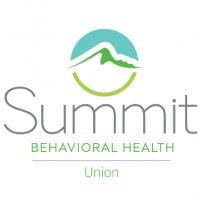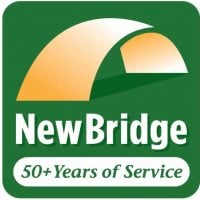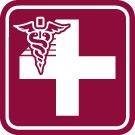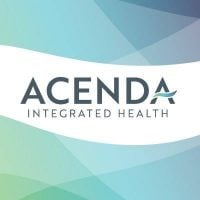Atlantic Health System - Morristown Medical Center
Drug Rehab Center in Morristown, New Jersey
Morristown Medical Center is an accredited and licensed Addiction Treatment Facility offering both inpatient and outpatient care, Dual Diagnosis treatment, Mental Health support, Eating Disorders treatment and affiliated with Atlantic Health System, as well as accepting all major private health insurance plans.
About This Morristown, NJ Facility
Atlantic Health System - Morristown Medical Center, situated in Morristown, New Jersey, is a renowned behavioral health facility that plays a crucial role in the healing process for patients dealing with mental health disorders, substance abuse, and various other conditions. With a team of highly-trained professionals, they offer comprehensive care to support both the mind and body.
- Comprehensive behavioral health services: Atlantic Health System - Morristown Medical Center provides a wide range of mental health services on an inpatient and outpatient basis, including intensive outpatient programs, to cater to the unique needs of each patient.
- Crisis intervention and support: The facility offers 24-hour crisis intervention services, including a hotline, risk assessments, screenings, and community trauma assistance, ensuring that patients receive the support they need during challenging times.
- Electroconvulsive therapy (ECT): Atlantic Behavioral Health offers both inpatient and outpatient ECT treatment, which has been clinically proven to have a mood-stabilizing effect for patients struggling with major depression who have not responded well to other forms of therapy.
Atlantic Health System - Morristown Medical Center holds JCAHO, SAMHSA, and State License certifications, demonstrating their commitment to meeting the highest standards of quality and safety in behavioral health care. Their inpatient mental health programs are designed to help stabilize those with mental illnesses, encouraging personal empowerment through self-awareness and education.
The facility specializes in treating individuals suffering from dual diagnosis, eating disorders, mental health issues, opioid addiction, and alcoholism. They offer a comprehensive range of treatment levels, including aftercare support, dual-diagnosis programs, inpatient and outpatient services, intensive outpatient programs, intervention assistance, partial-hospitalization options, residential programs, and sober-living/half-way houses.
Genders
Ages
Modality
Additional
Accreditations
State License
SAMHSA

JCAHO
Conditions and Issues Treated
People with dual diagnosis have coexisting addiction and a mental disorder. 9.2 million US adults had a co-occurring disorder in 2018, so not just limited to New Jersey residents. Best treatment combines medication, psychotherapy (talk therapy), support group, and inpatient rehabilitation. Sometimes, complementary therapies – yoga, massage, and acupuncture – may also be used.
Levels of Care Offered
This center offers a variety of custom treatment tailored to individual recovery. Currently available are Aftercare Support, Dual-Diagnosis, Inpatient, Intensive Outpatient, Intervention, Outpatient, Partial-Hospitalization, Residential, Sober-Living / Half-Way, with additional therapies available as listed below.
Inpatient rehab is intended to treat severe addictions and co-occurring disorders. The length of stay in New Jersey varies from four weeks to six months according to the individual needs. Inpatient rehab ensures that the patient stays in a substance-free environment at Atlantic Health System - Morristown Medical Center.
Intensive outpatient programs mostly conduct meetings on weekdays. Group therapy is the main element in most intensive outpatient programs. Most IOPs last for about 90 days and include drug use monitoring and testing. A New Jersey IOP, like what’s offerd at Atlantic Health System - Morristown Medical Center, take much more time than a standard outpatient program. Some programs offer other services as well, such as employment assistance and medication management.
Outpatient treatment can be considered the lowest intensity level of addiction treatment in Morristown, NJ. It is ideal for early phase addiction or lower intensity addictions. Atlantic Health System - Morristown Medical Center peer group support, 12-step programs, and individual counseling may still be involved.
Partial hospitalization programs offer another level of addiction treatment at Atlantic Health System - Morristown Medical Center. It is another way to receive a significant amount of treatment while decreasing the time commitment and cost. It can be a good option for stepping down from inpatient treatment in anticipation of a fully independent life in Morristown, NJ.
Sober living home provides a drug and alcohol-free environment for people in Morristown trying to stay sober. The atmosphere in SLH is less restrictive than in inpatient rehab. Members have to follow many rules, including not drinking and using drugs and paying rent and bills. There is no limit for the minimum or maximum period of stay, but as long as you stay in the house, you should follow the rules, as it’s the opportunity for individual and group sobriety.
Residential treatment programs are those that offer housing and meals in addition to substance abuse treatment. Rehab facilities that offer residential treatment allow patients to focus solely on recovery, in an environment totally separate from their lives. Some rehab centers specialize in short-term residential treatment (a few days to a week or two), while others solely provide treatment on a long-term basis (several weeks to months). Some offer both, and tailor treatment to the patient’s individual requirements.
An intervention is a meeting held by families and friends of the addicted party, managed by Atlantic Health System - Morristown Medical Center. It lets the person know that their loved ones are concerned about them. It is intended to make the addicted party agree to get help.
Interventions are often hosted by a mental health professional in New Jersey who knows how to communicate with people dealing with addiction. These intervention services can make all the difference when it comes to getting loved ones to agree to treatment.
After treatment, addiction treatment can be frightening for newly sober people. Aftercare support provided by Atlantic Health System - Morristown Medical Center is designed to give resources and help on a continued basis. It can involve finding housing in and around New Jersey, setting up 12-step meeting groups, continued medical monitoring, and counseling.
Atlantic Health System - Morristown Medical Center‘s Therapies & Programs
Individual therapy aims to identify the core issues that would have led the patient to substance abuse and address the root cause effectively. Patients find the therapist as a person who they can trust. It helps them to open up and discuss personal and sensitive issues, which they may not be comfortable discussing in a group.
Couples therapy is an approach wherein the patients and their partners are engaged together as a part of the treatment process. When a person becomes a victim of substance abuse, it affects the patient and the people around him, particularly his partner. Their relationship can become strained due to lack of communication, financial issues, loss of trust, lack of intimacy, and physical abuse in more severe cases.
Couples therapy addresses these issues and tries to rebuild the trust between the partners. The partner’s involvement in the process will result in greater chances of treatment success and sustained recovery.
Family therapy is a set of therapeutic approaches that assumes that the entire family is a system. It utilizes the strengths and resources of the family to help the patient refrain from resorting to substance abuse. It helps to repair relationships and improve communication between family members.
Group therapy happens at Atlantic Health System - Morristown Medical Center in a controlled group environment, as opposed to a one-on-one setting. It supports Morristown, NJ patients’ recovery by offering a sense of comfort and letting them know that they are not alone. Through shared conversations, patients also learn to develop faith and understanding and gain insight on their addictions.
Unresolved trauma is often a key reason why many patients resorted to substance abuse. Trauma therapy refers to treatment wherein specialist therapists help the patients to resolve the trauma that led the patients to substance abuse. The trauma could be physical abuse, sexual abuse, war, natural disasters, divorce, accident, loss of a loved one, etc. Thinking of these traumatic events causes emotional disturbances like anxiety, depression and results in addiction. If trauma is the primary cause of substance abuse, then both issues must be addressed. Otherwise, there is a risk of relapse. Trauma therapy also improves the cognitive functions and provides long term benefits.
Dialectical Behavior Therapy (DBT) is an improved version of Cognitive Behavioral Therapy (CBT). DBT is a treatment of choice for people suffering from self-harming behaviors characterized by cutting and suicidal thoughts or inclinations.
This treatment is developed to help individuals recognize their thought patterns, behaviors, and feelings. It has demonstrated its effectiveness for people that are finding it difficult to control their emotions and urges. Conditions such as obsessive-compulsive disorder and borderline personality disorder also benefit from DBT as it imparts individuals stress-management techniques and enhanced self-esteem so they can sustain their sobriety by reducing the impact of triggers and out-of-control emotions.
Cognitive behavioral therapy (CBT) is a way of addressing concerns through talking. It can be used in individual counseling sessions. Talking through issues with professionals at Atlantic Health System - Morristown Medical Center can identify sources of discomfort or unhealthy thoughts. It is a way of learning about yourself and your individual perceptions. CBT is a healthy way of addressing some behaviors which may be bringing unintended consequences in your life.
Nicotine replacement therapy (NRT) is a treatment that helps people to quit smoking. NRT reduces the withdrawal symptoms by giving nicotine in low doses. It is safe for most adults, teens and pregnant women should not undergo NRT. Research shows that the use of NRT doubles the chances of quitting smoking.
Patient Experience
Experiential Therapy at Atlantic Health System - Morristown Medical Center
Experiential therapy works on the principle that the perception of individuals determines their behavior. It is different from medication and talk therapy and suits those who have difficulty in expressing themselves and interact. Experiential therapy works by using tools and activities to recreate past experiences and encourages the release of suppressed thoughts that were responsible for the negative feelings and drug addiction.
Role-playing, arts and crafts, music, animal care, rock climbing, etc. are some of the activities used in this therapy. Gradually the individual will experience calmness and love and change their perception positively. Other than drug addiction, Experiential therapy is useful in various behavioral and eating disorders.
Payment Options Accepted
For specific insurance or payment methods please contact us.
Is your insurance accepted?
Ask an expert, call (888) 674-0062
Atlantic Health System Associated Centers
Discover treatment facilities under the same provider.
- Atlantic Health System - Chilton Medical Center in Pompton Plains, NJ
- Atlantic Health System - Atlantic Rehabilitation in Morristown, NJ
- Atlantic Health System - Overlook Medical Center in Summit, NJ
- Atlantic Health System - Hackettstown Medical Center in Hackettstown, NJ
- Atlantic Health System - Newton Medical Center in Newton, NJ
Learn More About Atlantic Health System Centers
Additional Details
Specifics, location, and helpful extra information.
Morristown, New Jersey 07960 Phone Number(888) 247-1400 Meta DetailsUpdated April 15, 2024
Staff Verified
Patient Reviews
There are no reviews yet. Be the first one to write one.
Morristown, New Jersey Addiction Information
The state of New Jersey is afflicted by the rising opioid overdose crisis and the increase in the number of residents engaging in illegal substance abuse. 90% of the 2,900 drug overdose deaths in New Jersey involved opioids in 2018. Over 1.1 million New Jersey residents reportedly use drugs in a given year. High prevalence of drug and alcohol abuse caused 14% of all deaths in the state between 2008 and 2017.
Drug addiction affects nearly 12% of all adults in Morristown, New Jersey. The drug of choice for many young people in the area is oxycodone, while marijuana and cocaine are still major problems. There are over 100 drug-related crimes in Morris County each year. There were over 16 overdose deaths in Morristown in 2016, which was a 4% rise from 2015. Commonly available treatments include residential and outpatient treatment.
Treatment in Nearby Cities
- Marlboro, NJ (32.9 mi.)
- Hackettstown, NJ (19.5 mi.)
- Bordentown, NJ (46.4 mi.)
- Haddonfield, NJ (69.1 mi.)
- Lafayette, NJ (24.3 mi.)
Centers near Atlantic Health System - Morristown Medical Center
The facility name, logo and brand are the property and registered trademarks of Atlantic Health System - Morristown Medical Center, and are being used for identification and informational purposes only. Use of these names, logos and brands shall not imply endorsement. RehabNow.org is not affiliated with or sponsored by Atlantic Health System - Morristown Medical Center.
